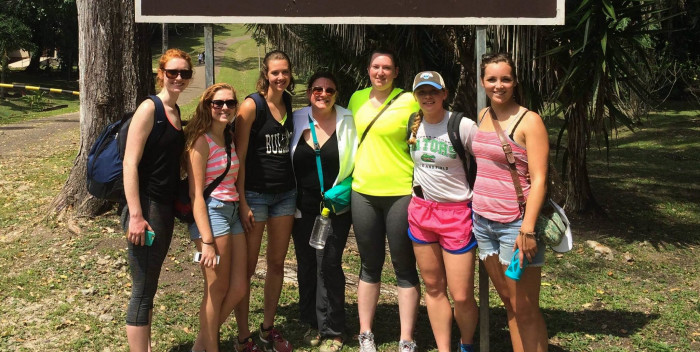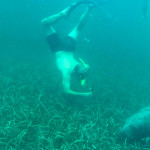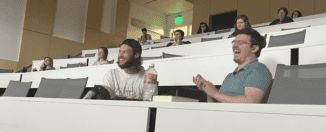Students Study Marine Biology in Belize
by Ben Middendorf
Concordia students traveled to a tiny island off the coast of Belize during spring break to study marine biology and ecology and interact with Belizean culture.
The study tour is part of BIO 363, an eight-week course which ends in a trip to a tropical marine ecosystem.
“Belize has the best snorkeling in the northern hemisphere, the second biggest great barrier reef in the world, so it’s pretty amazing,” Assistant Professor of Biology Jennifer Fruend said.
Six Concordia students were part of this year’s tour March 4-13 along with former Concordia music professor Alfred Born and alumnus Rob Brewer, who has a master’s in marine biology.
Fruend led the tour this year. Retired professor Dr. Joseph Gubanyi, who led the tour many times in the past, was also a part of the trip.
In preparation for the trip, students attended a weekly class to learn how to identify many different marine organisms. They also practiced snorkeling at the Lincoln YMCA.
“I was a little nervous about actually being in the ocean, in the middle of nowhere, basically,” sophomore and pre-med student Anna Beune said. “But I was really excited to learn about all the different species and different types of reefs that we were covering in class.”
The group started at the base of Tobacco Caye Island and ventured out to explore various reef ecosystems, noting species’ interactions in an observational journal and reflective papers.
“I’m just a teacher at heart, so I love watching students interact with what they’re doing,” Fruend said.
“On Tuesday, we were looking for a manatee,” Beune said. “We finally saw one…so we all just put our gear on and jumped in the water and swam with it.”
“Seeing such a rare species in the wild has always been a dream of mine,” senior and organismal biology student Megan Burma said in an email interview. “There is just no comparison to that incredible and unexpected experience.”
The course also fulfils Concordia’s general education Global Multicultural requirement, so an important part of the class is interacting with the Belizeans.
“It’s really a melting pot of a lot of different cultures: Mayan, African, Creole, Spanish,” said Fruend. “They’ll see Mayan ruins (and) they’ll spend time in a market where they can look at interactions.”
“The cultural aspects of the trip made me realize how different some people can be,” Beune said. “But they’re still some of the nicest people I’ve ever met, and I just felt like I was at home, even though I was in a completely different country.”
Though the trip is intended for biology students, Fruend welcomes any student who might be interested in the tour.
“I feel very strongly about field learning, seeing the content in the actual place where it’s happening,” said Fruend. “It’s just straight identification skills, which is important for everything.”
Next year, Fruend will offer tours on tropical forest ecology in Costa Rica and arctic biology in northern Canada.
- Photo provided by Lisa Pope and Samantha McConnell.














